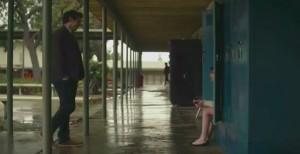GROWING PAINS: Movie Reviews of Breathe and A Brilliant Young Mind by Howard Casner
Posted: September 30, 2015 | Author: Donald | Filed under: Uncategorized | Tags: A Brilliant Young Mind, Anne-Sophie Brasme, Asa Butterfield, Beautiful Young Minds, Breathe, Eddie Marsan, Inglourious Basterds, James Graham, Josephine Japy, Julien Lambroschini, Lou de Laage, Melanie Laurent, Morgan Matthews, Pierre Laurent, Rafe Spall, Sally Hawkins, The Simpsons | 1,866 Comments »First, a word from our sponsors: I am now offering a new service: so much emphasis has been given lately to the importance of the opening of your screenplay, I now offer coverage for the first twenty pages at the cost of $20.00. For those who don’t want to have full coverage on their screenplay at this time, but want to know how well their script is working with the opening pages, this is perfect for you. I’ll help you not lose the reader on page one.
Ever wonder what a reader for a contest or agency thinks when he reads your screenplay? Check out my new e-book published on Amazon: Rantings and Ravings of a Screenplay Reader, including my series of essays, What I Learned Reading for Contests This Year, and my film reviews of 2013. Only $2.99. http://ow.ly/xN31r
and check out my Script Consultation Services: http://ow.ly/HPxKE
Warning: SPOILERS
 Melanie Laurent is an artist probably best known in the U.S. for her role as the Jewish girl who escapes the clutches of Christoph Waltz in the opening of the film Inglourious Basterds. But she doesn’t seem to be somebody who is only going to do one thing. Not only does she sing, but she has also branched out into directing and screenwriting.
Melanie Laurent is an artist probably best known in the U.S. for her role as the Jewish girl who escapes the clutches of Christoph Waltz in the opening of the film Inglourious Basterds. But she doesn’t seem to be somebody who is only going to do one thing. Not only does she sing, but she has also branched out into directing and screenwriting.
Her most recent film, Breathe (her second feature), written by her and Julien Lambroschini from a novel by Anne-Sophie Brasme, is a very assured character study of Charlie, a high school teenager who suddenly finds her outer and inner world spiraling out of control.
The cause of this chaos is the arrival at her school of a transfer student, Sarah. At first Sarah seems sweet and good natured (in a rather clever little opening bit on her first appearance) and she quickly and very determinedly ingratiates herself into Charlie’s life.
But it’s not long before the audience sees what Charlie can’t. That Sarah has a darker aspect to her personality. In fact, it almost immediately becomes clear that Sarah is a sociopath. She quickly manipulates Charlie into dropping her present best friend without Charlie realizing she has done so. And it’s not long before the two new friends are inseparable. Read the rest of this entry »
THE BEARABLE LIGHTNESS OF BEING: Movie Review of Paddington
Posted: January 22, 2015 | Author: Donald | Filed under: Uncategorized | Tags: Ben Whishaw, Geoffrey Palmer, Hamish McColl, Hugh Bonneville, Matt Lucas, Michael Bond, Nicole Kidman, Paddington, Paul King, Peter Capaldi, Sally Hawkins | 1,065 Comments »First, a word from our sponsors. Ever wonder what a reader for a contest or agency thinks when he reads your screenplay? Check out my new e-book published on Amazon: Rantings and Ravings of a Screenplay Reader, including my series of essays, What I Learned Reading for Contests This Year, and my film reviews of 2013. Only $2.99. http://ow.ly/xN31r
Warning: SPOILERS
 The opening scenes from Paddington, the new film about the eponymous English toy bear called, well, Paddington, appropriately enough, has some incredibly gorgeous and glorious animation. When a bear first appears, it’s as if every single whisker and individual hair of his fur is alive and moving, gracefully flowing even.
The opening scenes from Paddington, the new film about the eponymous English toy bear called, well, Paddington, appropriately enough, has some incredibly gorgeous and glorious animation. When a bear first appears, it’s as if every single whisker and individual hair of his fur is alive and moving, gracefully flowing even.
The animated movement of the bear and the intermix of animation of real live actors is just about faultless and the filmmakers have contributed some marvelous bits of magic as well, such as a doll’s house that reveals the house Paddington lives in and shows what is going on in the other rooms when the doors swing open, or a wall with paintings of trees on it with leaves that flutter away when the weather, symbolically, changes inside the house.
The movie, with a screenplay by Hamish McColl and the director Paul King (based on the character created by Michael Bond) is also witty. In fact, it’s often very witty. It’s almost a cliché that English films are going to outwit their American counterparts these days. It just seems to be part of the British character that they can’t escape. Read the rest of this entry »
OF GODS AND MONSTERS: Moview Reviews of Godzilla and X-Men: Days of Future Past by Howard Casner
Posted: May 29, 2014 | Author: Donald | Filed under: Uncategorized | Tags: Aaron Taylor-Johnson, Alexander Desplat, Bryan Cranston, Bryan Singer, Dave Callaham, David Strathairn, Elizabeth Olson, Evan Peters, Gareth Edwards, Godzilla, Hugh jackman, Ian McKellen, Jane Goldman, Jennifer Lawrence, Juliette Binoche, Ken Watanabe, Matthew Vaughn, Max Borenstein, Michael Fassbender, Nicholas Hoult, Patrick Stewart, Peter Dinklage, Peter McAvoy, Sally Hawkins, Simon Kinberg, X-Men: Days of Future Past | 1,358 Comments » All the while, while watching Godzilla, the mega monster movie epic written by Max Borenstein from a story by Dave Callaham and directed by Gareth Edwards, all I could think is “where is Mystery Science Theater 3000 when you need them?”
All the while, while watching Godzilla, the mega monster movie epic written by Max Borenstein from a story by Dave Callaham and directed by Gareth Edwards, all I could think is “where is Mystery Science Theater 3000 when you need them?”
(I remember this one moment, see, and this female MOTU, okay, she like passes over the central character, Ford Brody, and you can like see its testicular like sac carrying its eggs and everything, and, and I so wanted Crow, Tom Servo or Gypsy to call out, “Please don’t teabag me, please don’t teabag me”). Read the rest of this entry »
TEENANGSTERS AND DOPPLEANGSTERS: Movie reviews of Palo Alto and The Double by Howard Casner
Posted: May 26, 2014 | Author: Donald | Filed under: Uncategorized | Tags: Avi Korine, Cathy Moriarty, Chris Messina, Chris O’Dowd, Craig Roberts, Emma Roberts, Gia Coppola, Jack Kilmer, James Fox, James Franco, Jasmine Paige, Jesse Eisenberg, Kobna Holdbrook-Smith, Mia Wasikowska, Nat Wolf, Noah Taylor, Paddy Considine, Palo Alto, Richard Ayoade, Sally Hawkins, The Double, Wallace Shawn | 630 Comments » Palo Alto is about teenage angst and existential ennui, just like the Twilight series, but without the werewolves and vampires, though almost as painful to get through (sorry, but it’s true).
Palo Alto is about teenage angst and existential ennui, just like the Twilight series, but without the werewolves and vampires, though almost as painful to get through (sorry, but it’s true).
The story revolves around three teens: April (Emma Roberts), Teddy (Jack Kilmer) and Fred (Nat Wolf) who are going through the throes of finding themselves. Unfortunately, the throes they are going through are pretty much the same throes that millions of other movie teens have pretty much gone through in millions of other movies before this and dramatized in pretty much the same way as those millions of others that came before as well. Read the rest of this entry »
Movie Reviews of FRUITVALE STATION, THE WAY, WAY BACK and BLUE JASMINE by Howard Casner
Posted: August 8, 2013 | Author: Donald | Filed under: Uncategorized | Tags: Alec Baldwin, Allison Janney, Andrew Dice Clay, Blue Jasmine, Cate Blanchette, Fruitvale Station, Jim Rash, Liam James, Maya Rudolph, Michael B. Jordan, Nat Faxon, Peter Sarsgaard, Ryan Cooglar, Sally Hawkins, Sam Rockwell, Steve Carrell, The Way, Toni Collette, Way Back, Woody Allen | 2 Comments »The movie Fruitvale Station has a horrific finale, a fevered, shaking camera dramatization of a terrible, tragic incident. It’s also the main reason to see the film. It’s a disturbing, chaotic and frustrating set of scenes and makes you very angry. So if nothing else, the movie has certainly achieved something here. At the same time, as a whole, the movie never really connected with me. The rest of the film is a chronicle of the events, a day in the life of type thing, of the central character, Oscar Grant, a young man with a difficult background spending his last day on earth without knowing his time is running out.
How you feel about the film will probably depend upon how you feel about this character. Oscar (played sincerely and solidly by Michael B. Jordan) is a petty drug dealer who has been in and out of prison. He’s also a compulsive liar; a player; has anger management issues; and refuses to take any responsibility for how his life has turned out. He’s the sort of guy who tells his girlfriend and mother of his child that that last affair he recently had, you know the one, well, hey, now, babe, that meant nothing and it’s over and I’m a new guy now; then in the next scene, he’s flirting with a young woman at the store he once worked at. He’s also the kind of guy who threatens his ex-box with bodily harm if he won’t give him his job back, the job he lost from constantly showing up late (at another time, he threatens to urinate on a poor store owner’s entranceway if he won’t let some friends of his use the store bathroom—you see a pattern here).
After all that, he should be fascinating. He’s the sort of character that I go to movies to see. But Oscar isn’t. In fact, he’s sort of familiar and the kind of character we’ve seen many times in movies before. There’s nothing that particularly unique or vibrant about him. He’s even a bit bland, when all is said and done. Hard to believe when one reads the description above, but that was pretty much it for me.
I think because of this, once the emotional effect of the horrific incident at Fruitvale Station wore off, I thought: okay, it was a terrible event, but I’m still not sure why the writer/director Ryan Cooglar made the movie. The tragedy at the end is not presented in a way that is a commentary on Oscar’s life, though one gets the feeling that Cooglar wants it to be in some way. Instead, it’s unclear Cooglar offers any real insight to the situation or has anything to say about it other than, well, than “shit happens”. Which, actually, is a perfectly fine theme; it’s just unclear that this was Cooglar’s intention.
I do highly recommend a film with a similar situation, The Murder of Stephen Lawrence, written and directed by Paul Greenglass, also a true story about a black teenager who was shot and killed by police officers for unclear reasons; this time in England. It’s a tension filled story that grabs you from the beginning and refuses to let go. Fruitvale Station felt a bit too leisurely to me.
Over the past couple of years, two genres of film seem to have dominated the silver screen: the coming of age film (from Moonlight Kingdom to The Perks of Being a Wildflower to The Kings of Summer to The Bling Ring to The To Do List) and the film apocalypse (from It’s a Disaster to This is the End to The World’s End to World War Z to almost any movie based on a super hero). I’m not sure what this means. I can’t say that it’s a particularly optimistic view of the world to say that just when one takes the first steps toward being an adult you’re shit out of luck because the world’s about to bite you in the ass big time.
The latest foray into the coming of age category is The Way, Way Back, a story about a teen, Duncan (played satisfactorily by Liam James), having to spend a couple of weeks at a beach house with his mother Pam and her new boyfriend Trent, who treats Duncan like a cockroach to be stomped on. While The Kings of Summer is a more ambitious film, The Way, Way Back is actually more satisfying if for no other reason that while the kids in the former film are nothing but spoiled brats who don’t know when they are well off, the hero in the latter film is in a near nightmarish situation in which he is more sinned against that sinning.
But like many films in this popular genre, The Way, Way Back is fun and entertaining and even moving at times, while not really bringing anything new to the table and it all feels rather formulaic. What it does have is some very nice acting, especially from Sam Rockwell in the Bill Murray role, as Owen, the manager of a swimming park who takes pity on the depressed Duncan and becomes the true father figure that Trent (Steve Carrell, giving it his all, while at the same time, never seeming comfortable in the roll and always looking miscast) could never be. Giving more than able support is Toni Collette as the scared and desperate Pam; Allison Janney, hysterical as Betty, the alcoholic in the making next door neighbor; and Maya Rudolph as Owen’s long suffering co-worker.
Perhaps the most original and intriguing aspect of the screenplay (by Nat Faxon and Jim Rash, who also directed) is the character of Betty. In many ways, she treats her kids in the same inexcusably awful manner as Trent treats the kids under his roof. But while Trent leaves you with the feeling that he’s one degree off from becoming Ted Bundy, it’s obvious that Betty and her kids all love each other very much. It’s a clever juxtaposition.
But in the end, does it really matter? The way things are going in the movies these days, all the characters are going to die in a couple of years anyway.
Blue Jasmine is a character study of a faded Northern bell. Any resemblance to A Streetcar Named Desire is purely unintentional, I’m sure (and I have the deed to the Brooklyn Bridge in my pocket). But though written and directed by the great Woody Allen, it feels like a screenplay written by someone who had no emotional attachment to anyone in the film or anything that is going on in it as well. And when it’s all over, you go: fair enough, but exactly why was it made?
It stars Cate Blanchette as Jasmine, a woman married to a Bernie Madoff type (Alec Baldwin) who loses all her upper class trappings when her husband is arrested and the IRS and the court take everything she owns. She moves to San Francisco to live with her sister Ginger, someone she feels too superior to to really want to have anything to do with (Sally Hawkins). The story is told in a rather clunky manner with tons of expository dialog and some distracting side trips (mainly dealing with the Ginger’s love life) that just get in the way of Jasmine’s central through line.
The plot is often not that believable; Jasmine takes a computer course for some reason that never made sense—she claims to be computer illiterate, but no one in her social background is this obtuse. She also has a romance with a politician on the rise (Peter Sarsgaard), someone who works for the State Department yet still has enough money to buy a second home only Donald Trump could afford (okay, I’m exaggerating, but you get my drift). This subplot is so questionable that one is expecting Sarsgaard’s character to turn out to be a con man of some sort with the intent of Jasmine getting a taste of her own medicine; but no, he is exactly what he seems. And that’s without mentioning a surprise ending that only poses more questions than it answers.
On the plus side, this is a movie that is cast within an inch of its life. Everyone is excellent and some, like Hawkins and Blanchett, are brilliant. Perhaps most surprising Is Andrew Dice Clay who is spot on as Hawkins’ working class ex-husband (who knew that Clay could actually have had an acting career if he hadn’t been such a jerk). But in many ways, that is almost all Blue Jasmine has. Whether that is enough, is up to you.











